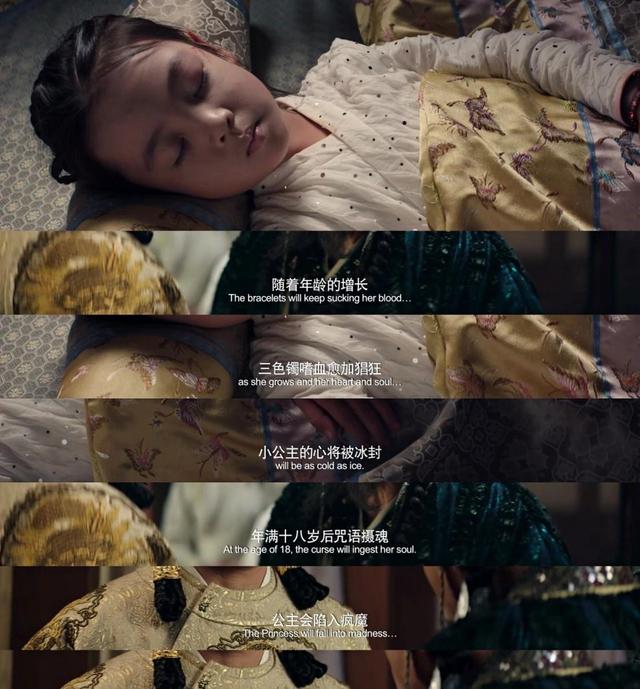Turandot: The Origin of the Spell is an adaptation of Puccini's last opera, Turandot.
If you haven't seen the original Turandot opera, Turandot: The Origin of the Spell is a very attractive story in itself.

Although there are old-fashioned palace fights, power grabs and ways to save love.
However, if someone has not seen the content of the original opera, they will feel that the adapted movie, the plot looks a bit foreign, not in the middle.
The original opera is divided into three parts. In the adaptation, the Great General is a villain, but princess Turandot, who is cold in the opera, is more like a "villain".
Image source network screenshot
After Calaf successfully answered three of Princess Turandot's riddles, he willingly married himself in order to get the princess to marry him.
Calaf also set a puzzle for the princess,
"Before dawn, if the princess could know my name, I would give up my marriage and be willing to die."
In order to answer Carraf's question, Turandot went on a killing spree and tortured the relevant personnel.
Watching the original opera, as an outsider, I hope that Prince Carav and his maid Liu'er can have a lover and eventually become a family.
Unfortunately, in the story of the opera, Willow, who is deeply righteous and deeply in love with Carav, does not succumb to Princess Turandot's persecution.
Instead, in order to fulfill Calaf's love for Princess Turandot at first sight, Willow chooses to sacrifice her life to save Calaf's puzzle.
When Lady Carla learned of Willow's death, he said to Princess Turandot in sorrow,
"O indifferent princess, no matter how fiery my heart is, I can't melt a little bit of frost from you."
Faced with Willow's death, Calaf was filled with despair and resentment.
"My guilt is borne by innocent people."
By this time, Calaf had decided to die.
Perhaps this is the earliest "love triangle", the male protagonist loves Princess Turandot and is willing to give his life to fight for love.
And the maid Willow also gave her life for the beloved Caraf.
Princess Turandot was deeply shocked by Willow's death and actually fell in love with Calaf.
In the original opera, there is no ambitious General Po Yan, nor so many intrigues and tricks.
Some are the three ministers of Ping, Pang and Peng, who appear funny from time to time. And this also adds a bit of humor to the opera.
Originally Puccini was meant to show that this was a love story that transcended identity and race.
After the film, although this theme is expressed, it is diluted in the journey of General Po Yan to seize power.
Coupled with the sweat played by Jiang Wen, it is too "bland and straightforward" in emotional management, and it is easy to make people play.
This mood without waves, from the beginning of Princess Turandot being cursed by the tricolor bracelet, continued to the rebellion of General Po Yan, and did not change much.
At the end of the film, it is a meaningful show of the military reforms caused by Calaf after bringing back the gunpowder, which symbolizes beauty and love, to the West.
Puccini died before he could finish Turandot, writing only about the scene where Willow dies.
Perhaps in the hearts of the audience, the real finale originally arrived after Liu'er sacrificed for love.
The back part was made by his student Franco. Alfano finished it according to his draft.
In April 1926, when the work was premiered at the Teatro alla Scala in Milan, Toscanini, who was in charge of the performance, said in the part "The Death of Willow" that "the part composed by Mr. Puccini ends here" and put down the baton.